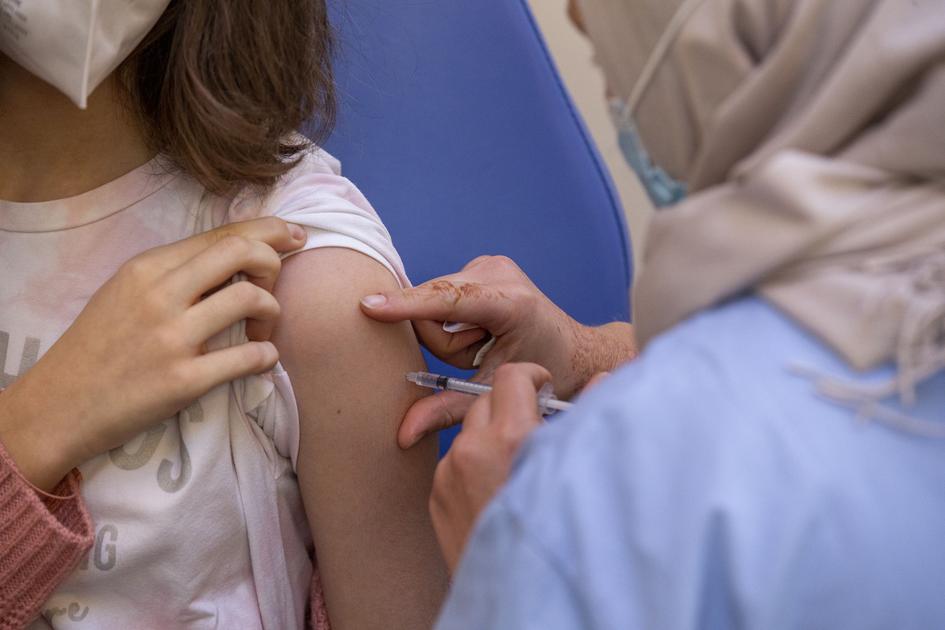As was the case with the adult population, the regional gap in vaccination rates can now be seen in children, with nearly 45% of children between 5 and 11 having received a first shot in Flanders, compared to 16% in Wallonia and just 10% in Brussels.
The difference reflects the vaccination willingness of the entire population, as the uptake among adults in Flanders (93%) is much higher than in the rest of the country (84% in Wallonia, 73% in Brussels), according to the latest figures from the Sciensano national health institute.
This could partly be due to the enthusiasm of many Dutch-speaking politicians and experts for vaccinating young children, whereas their Francophone counterparts have been much more hesitant – including in the Superior Health Council.
In its invitation letter for vaccination, the Flemish Agency for Care and Health stated that the shot was "recommended" for children aged 5 to 11 – language that had been criticised by Flemish MP Lorin Parys (N-VA) – while Wallonia and Brussels did not.
"We have formulated it less strongly," Inge Neven of the Brussels health inspectorate told De Standaard. “Vaccination in children was not really a priority for us. We focused on the vulnerable population. With success: more than 70% of the over-65s received their third dose."
Related News
- 'Mainly flu-like symptoms': more young children with Omicron admitted to hospital
- Nearly all children aged 5 to 11 in Flanders invited for vaccination
- Half of primary school children already had antibodies before Omicron wave
Flanders did not set a target for vaccinating young children and many parents were hesitant about having their children vaccinated, especially after a previous infection. Yet the message from Flemish Health Minister Wouter Beke was clear: "Every child that is vaccinated contributes to the fight against the pandemic."
It is not yet clear how long antibodies protect children after an infection. "If parents still want to have their child vaccinated, that is possible. Parents who did not respond to the first invitation will receive a second one four weeks later."
The differences are not only noticeable within Belgium, but also compared to other countries. Furthermore, in countries with high vaccination rates among adults – such as Canada, Spain and Portugal – more than half of young children have already received their first dose.
In the UK, experts were more cautious about recommending the vaccine for children, only advising them for those with underlying conditions or frequent contact with vulnerable people. In Canada, by contrast, vaccination was recommended for all children.
Vaccination protects children (and their parents)
In Denmark, almost 50% of children had been vaccinated at the beginning of February, and an initial analysis showed that the number of infections among fully vaccinated children was 30% lower than in others. Pfizer's clinical trial still showed a reduction of 91%.
However, the Danish analysis took place in January, when the Omicron variant – which more easily circumvents existing immunity – was dominant. During that period, hospital admissions among unvaccinated 5 to 11-year-olds in Denmark rose, something also observed in Belgium.
"This is possibly the first preliminary indication that vaccination protects against hospitalisation, even in children who contract Omicron," the study stated.
A similar simulation in Sweden showed that vaccination in children had a greater effect on hospital admissions in adults than on the children themselves. This led Swedish experts to rule out the need for a specific vaccination campaign for 5 to 11-year-olds, given the "epidemiological situation and the medical benefit for the child."

